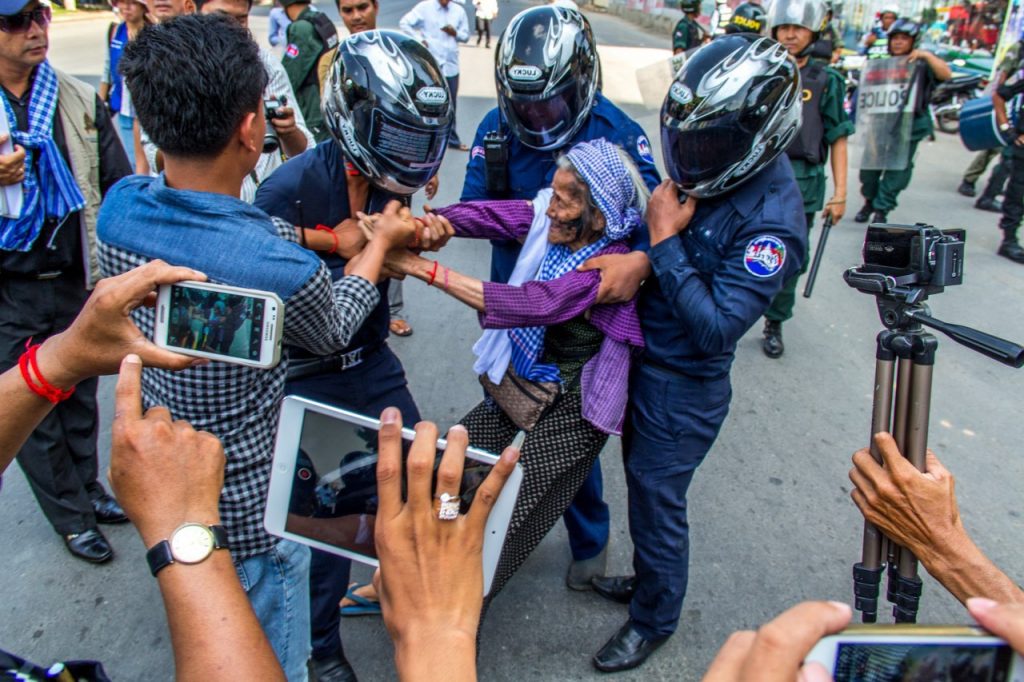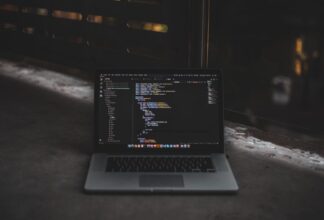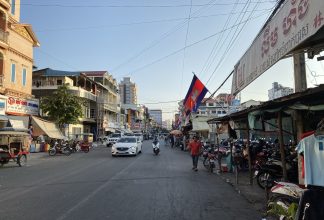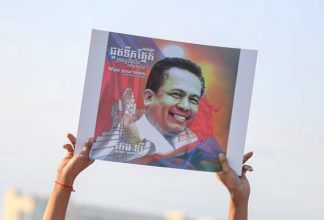Human Rights Defenders at Risk as Cambodia Proposes Draconian Emergency Law

In a joint statement today, Civil Rights Defenders and three other organisations express serious concern over Cambodia’s draconian draft state of emergency law, proposed in light of the COVID-19 pandemic. The law would seriously undermine the rule of law and fundamental freedoms as well as put human rights defenders at increased risk.
Joint statement
CIVICUS, FORUM-ASIA, Frontline Defenders and Civil Rights Defenders are seriously concerned about draconian provisions in Cambodia’s draft State of Emergency Law which mandates unfettered power to the executive, undermining fundamental freedoms with no defined endpoint.
The Cambodian government must immediately revise the draft law to bring it in line with international human rights laws and standards. If not, these emergency powers will be used as yet another weapon in Cambodia’s legal arsenal to quash dissent, stifle critics and silence human rights defenders.
The draft law bestows executive power to ban or restrict meetings and to close public or private spaces. It also allows the government to put in place means to observe all telecommunications systems, and to ban or restrict news or social media deemed to “generate public alarm or fear or generate unrest, or that could bring about damage to national security, or that could bring into being confusion regarding the state of emergency”. Failure to follow these measures could result in severely disproportionate prison sentences of up to five years – rising to ten years if deemed to ‘impact national security’ – and fines of up to 5,000,000 riels (about $1,250 USD).
The severity of the health crisis presents serious challenges for governments and requires measures to safeguard health and wellbeing. International human rights law gives space for governments to take on exceptional powers at exceptional times. But such measures must be necessary, enshrined in law, proportionate and non-discriminatory.
The draft State of Emergency Law contains no sunset clause and can only be ended by Royal Decree, which could allow the law to be used well beyond the end of the current pandemic. The potential permanence of these very restrictive measures makes the legislation neither proportionate nor necessary and would severely undermine Cambodia’s international human rights obligations to protect freedom of expression and assembly, as well as the right to privacy, enshrined in the International Covenant on Civil and Political Rights (ICCPR) and its own Constitution.
Our organisations are further concerned about provisions relating to restrictions on the media. Independent media in Cambodia has been under attack for several years, and media workers have been attacked, threatened and imprisoned for criticism of the government. The sweeping powers provided in this bill to ban media accused of ‘damaging national security’ will risk further rollbacks of press freedom and freedom of expression. Since January, at least 22 people have been arrested for sharing allegedly ‘false news’ relating to COVID-19. Human rights defenders, including the Acting Director of local human rights rights group LICADHO, have been threatened over comments made about the government’s response to the pandemic.
Vaguely-worded and over-broad measures in the draft law to monitor telecommunications systems combined with existing problematic laws will further increase repressive surveillance of activists and government critics.
Cambodia has a history of misusing legislation in order to silence critics and human rights defenders, and to entrench power in the hands of the ruling party. Its human rights record over the last years has been increasingly dismal. The dissolution of its political opposition and jailing of opposition members, as well as attacks on the press and against NGOs and unions, have shown that authorities are already willing and able to use and misuse vaguely-worded laws to stifle dissent. This civic space backsliding over the past three years has, furthermore, meant that the law cannot be scrutinized by either an opposition party, or independent civil society. Such scrutiny is crucial for the principle of governing by consent.
The global pandemic means that governments worldwide must take steps to safeguard the right to health of those they serve. However, all human rights are interconnected and interdependent. Laws brought in to protect health must not be given carte blanche to blatantly disregard fundamental rights to freedom of expression, association and assembly.
Signatories
- Asian Forum for Human Rights and Development (FORUM-ASIA)
- CIVICUS: World Alliance for Citizen Participation
- Civil Rights Defenders
- Frontline Defenders
We Are Watching.
Authoritarian governments must not use the corona pandemic as an excuse to repress human rights or silence critical voices. We are watching you. We will call out human rights violations and hold you accountable. Keep track of the world with us here.
Read more

